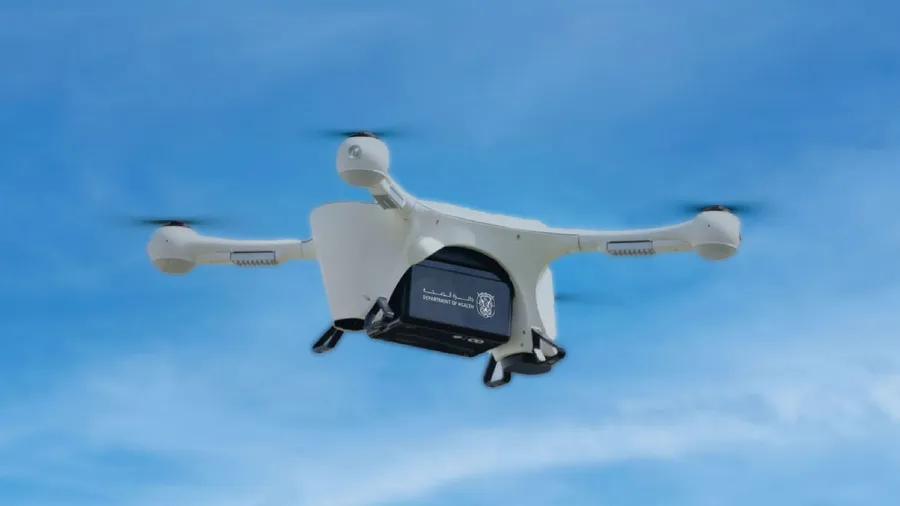
What's next for Emirati healthcare?
The last of four parts explores the future of UAE's healthcare in a post-pandemic world.
The Oxford Business Group released its United Arab Emirates (UAE) COVID-19 Response Report on 7 February. It focused on four areas, namely Resilience, Response, Recovery, and Reinvention.
Telemedicine becomes a norm
Supported by an advanced digital ecosystem, SEHA harnessed new technologies to enable physicians to provide remote consultations to patients at home while minimising the volume of outpatient visits to its facilities to limit opportunities for COVID-19 transmission. Telemedicine has become a preferred alternative for medical consultations as patients increasingly access care remotely via smartphones, supported by wearable devices and artificial intelligence solutions. The post-pandemic growth prospects for telemedicine are positive, with survey data suggesting global investors see high potential in this segment. Both patients and physicians expressed confidence in its efficiency.
The Ministry of Health and Prevention (MOHP) launched an international telemedicine service that enables patients and doctors to receive a second opinion or consultation on critical health conditions remotely. It is available in 16 public hospitals under the ministry's Visiting Consultants Programme and covers all types of medical specialities. Also, the MOHP launched a chatbot service to connect patients to doctors if they are suffering from COVID-19-related symptoms and to check their travel and contact histories.
Meanwhile, the Dubai Health Authority (DHA) launched a smart service under which Emiratis and residents can get free consultations and follow-ups with DHA-certified physicians through voice and video calls 24/7, while also providing access requests for laboratory and radiology tests and electronic prescriptions.
Lastly, the Department of Health - Abu Dhabi made the RemoteCare app, a tool for examining patients' symptoms, diagnosing non-emergency cases, booking appointments, and undergoing teleconsultations with doctors via voice or video calls, or text.
Pandemic highlights the need to address mental health
During the pandemic, the leading concerns of Emiratis were the safety and taking care of self and family, overall public health, the uncertainty of the duration of the pandemic, its impact on employment, and the economy. These concerns have caused an increase in depression, anxiety, and stress. Because of this, the national government deployed national programmes to address mental health challenges:
- National Policy for the Promotion of Mental Health, which aimed to create awareness and prevention of mental health issues, develop and provide comprehensive mental health services for patients of all ages, multi-sectoral collaboration to implement mental health policies, establish designated facilities, and improve mental health through research;
- Hayat ('life') programme for mental health support, also known as the Employees Assistance Programme, is a psychological and moral support programme to help federal government employees deal with the circumstances and anxiety associated with COVID-19 through mental health consultations with LifeWorks, the company contracted by the Federal Authority for Government Human Resource;
- National Strategy for Well-being 2031 was designed to promote an integrated concept of well-being, thus supporting UAE Vision 2021 and the UAE Centennial 2071; and
- The National Programme for Happiness and Well-being (NPHW) launched the National Campaign for Mental Support in partnership with over 50 experts, offering counselling and support through videos on social media with the hashtag #DontWorry to support the community in overcoming the psychological impact of the pandemic.
Abu Dhabi shows its potential as a life sciences centre
G42 Health Care, a subsidiary of Abu Dhabi's IT company G42, began trials for the BIBP Covid-19 vaccine in collaboration with SEHA in July 2020. Branded '4Humanity', it marked the first phase-III clinical trial of an inactivated vaccine across the Arab region. The campaign demonstrated Abu Dhabi's capabilities to conduct large-scale clinical trials, positioning itself as an important link in global medical research and development. In March 2021, G42 announced joint-venture plans with Sinopharm to produce COVID-19 vaccines within the emirate. This should help establish Abu Dhabi as a regional centre for life sciences, a priority under its Economic Vision 2030.
Abu Dhabi’s health care sector goes futuristic and international
In line with Abu Dhabi's Economic Vision 2030, SEHA has worked to upgrade health service provision through innovation, partnerships and specialist expertise. For example, the launch of Sheikh Shakhbout Medical City in 2019 has improved specialist care in the emirate and enhanced Abu Dhabi's reputation as a medical tourism destination, boosting the emirate's progress towards economic diversification and resilience goals in the process. The Department of Health - Abu Dhabi is building a comprehensive system of service providers to attract international patients, supported by a relaxed medical visa, advanced transport networks, and a wide variety of hotels and tourism agencies.
Meanwhile, SEHA partnered with VMware to transform its IT infrastructure with new cloud solutions. Emirati Genome Program to shed light on the value of genomic medicine, and Mohamed bin Zayed University of Artificial Intelligence to explore and develop artificial intelligence solutions to prominent health care challenges and improve the provision of patient-led services.


















 Advertise
Advertise


